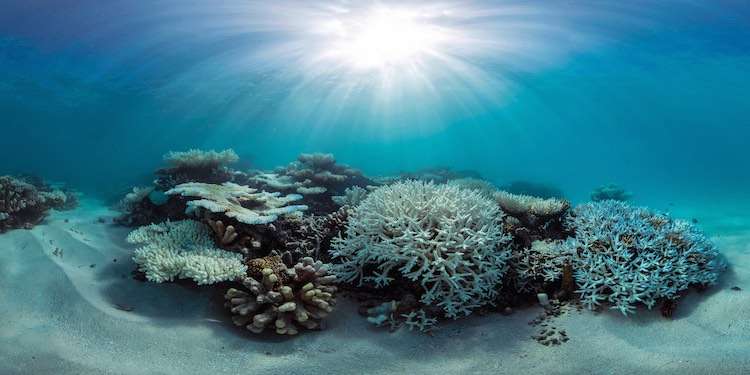Some Corals Have Started Adapting to Warmer Temperatures
These coral reef species have started resisting the underwater temperature changes and adapting to the changing climate, instead.

A global plan to save coral reefs from possible eradication due to climate change, pollution and poor fishing practices, was launched in Bali at the February 2017 World Ocean Summit.
The initiative known as 50 Reefs is the first global plan to save the most biodiverse ecosystem on the planet. It brings together leading scientists and conservationists to develop a list of the 50 most critical coral reefs and target them for protection by catalyzing global action and investment required to prevent their extinction.
A unique philanthropic coalition of innovators in business, technology and government are supporting 50 Reefs, including Bloomberg Philanthropies with The Tiffany & Co. Foundation and The Paul G. Allen Family Foundation.
"When people think of climate change, they often think of extreme heat, severe storms, and raging wildfires. But some of the most disastrous effects of climate change are out of sight – on the ocean floor — and saving the remaining coral reefs is critical," said Michael R. Bloomberg UN Secretary-General's Special Envoy for Cities and Climate Change. "Without coral reefs, we could lose up to a quarter of the world's marine biodiversity and hundreds of millions of the world's poorest people would lose their primary source of food and livelihoods."
The 50 Reefs initiative builds on work already done by The Ocean Agency and the Global Change Institute at The University of Queensland, responding to what they call "this perilous moment for coral reefs."
Their work is the subject of the 2017 Sundance Film Festival Audience Award-winning documentary, "Chasing Coral," which will be released worldwide on Netflix. Watch the trailer below:
Coral reefs worldwide have been estimated to have a value of $1 trillion, which generates at least $300-400 billion each year in terms of food and livelihoods from tourism, fisheries and medicines, according to recent reports examined by the Smithsonian Institute. The worldwide coral conservation communications campaign aims to preserve the livelihoods and culture of reef-dependent communities all over the world.
"This is an all hands on deck moment," said Professor Ove Hoegh-Guldberg, Director of the Global Change Institute at The University of Queensland.
SHARE The Good News – OR, (Photo credit: Richard Vevers for The Ocean Agency)
Be the first to comment